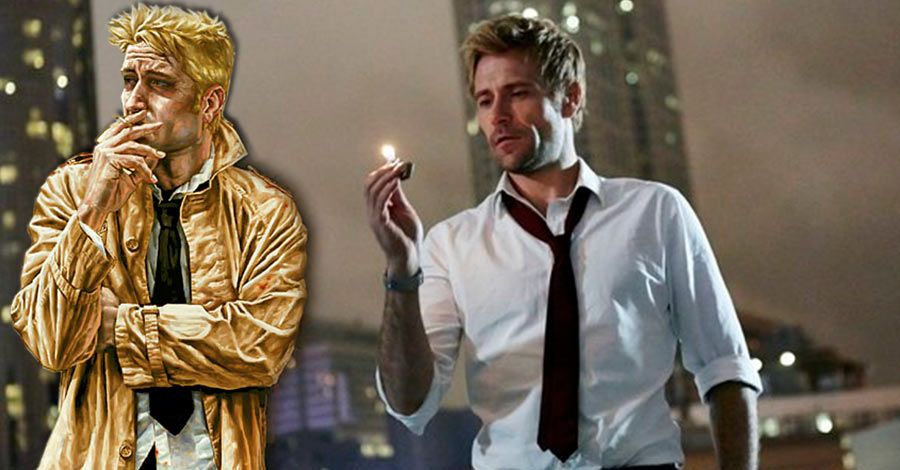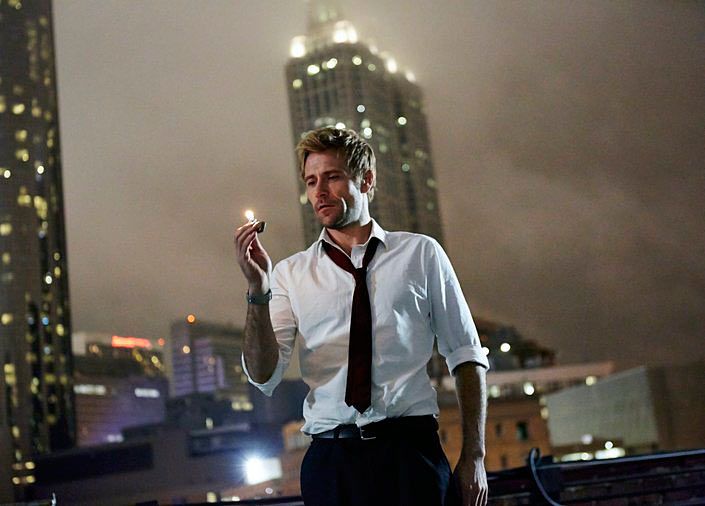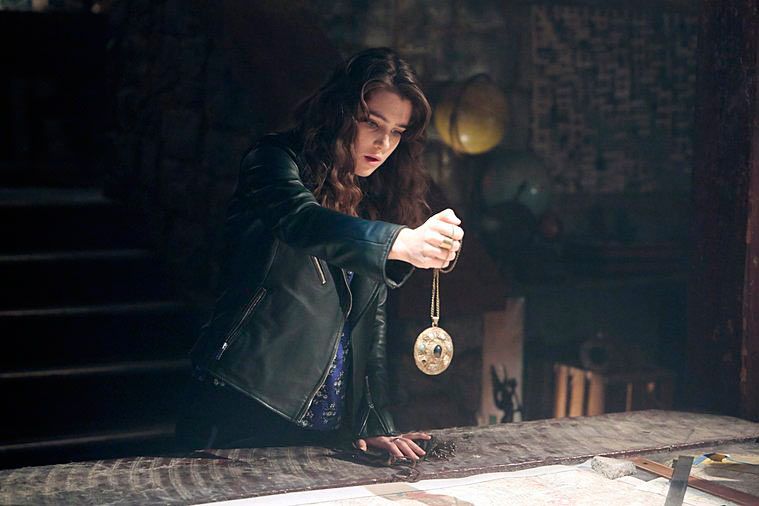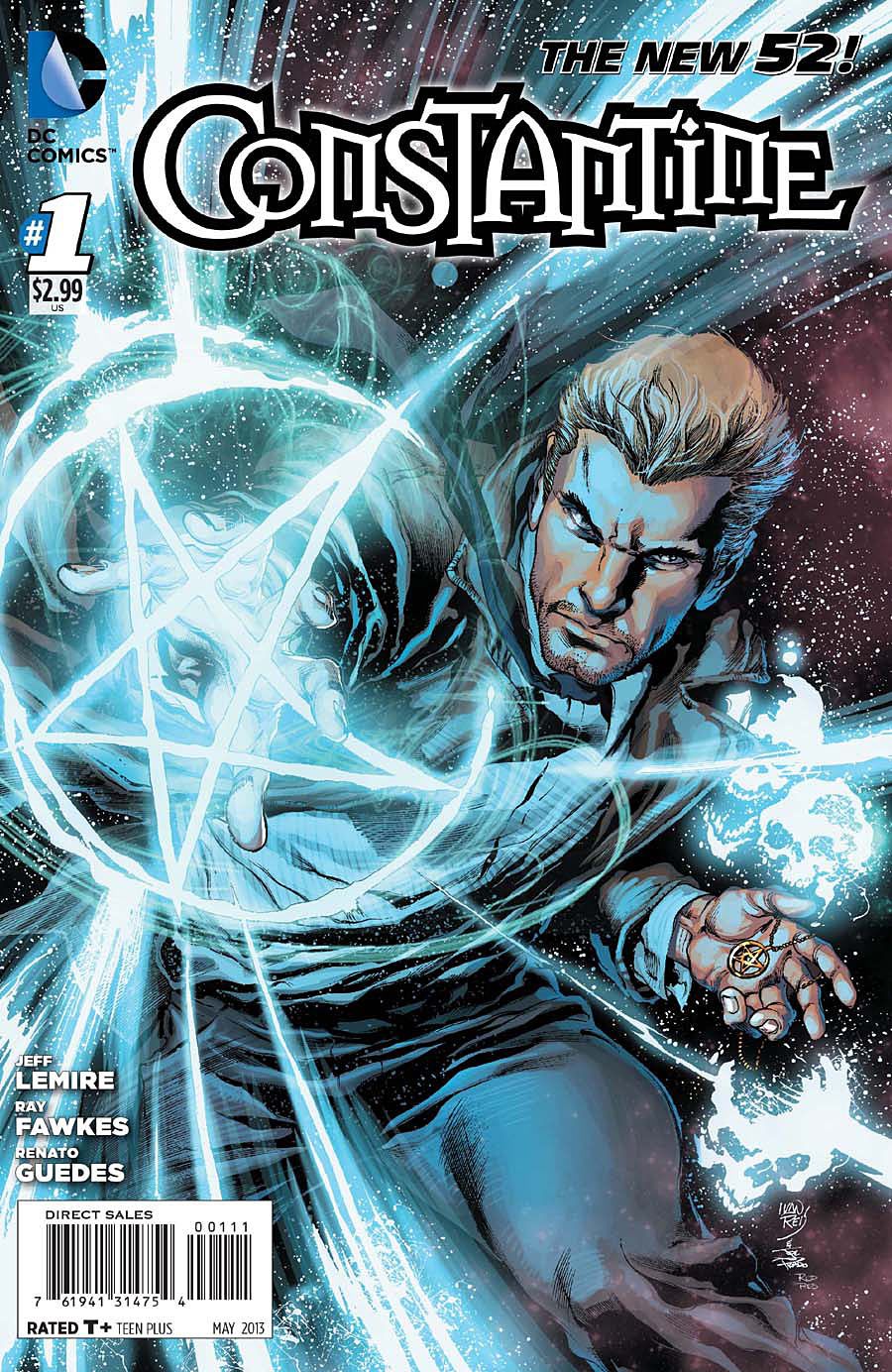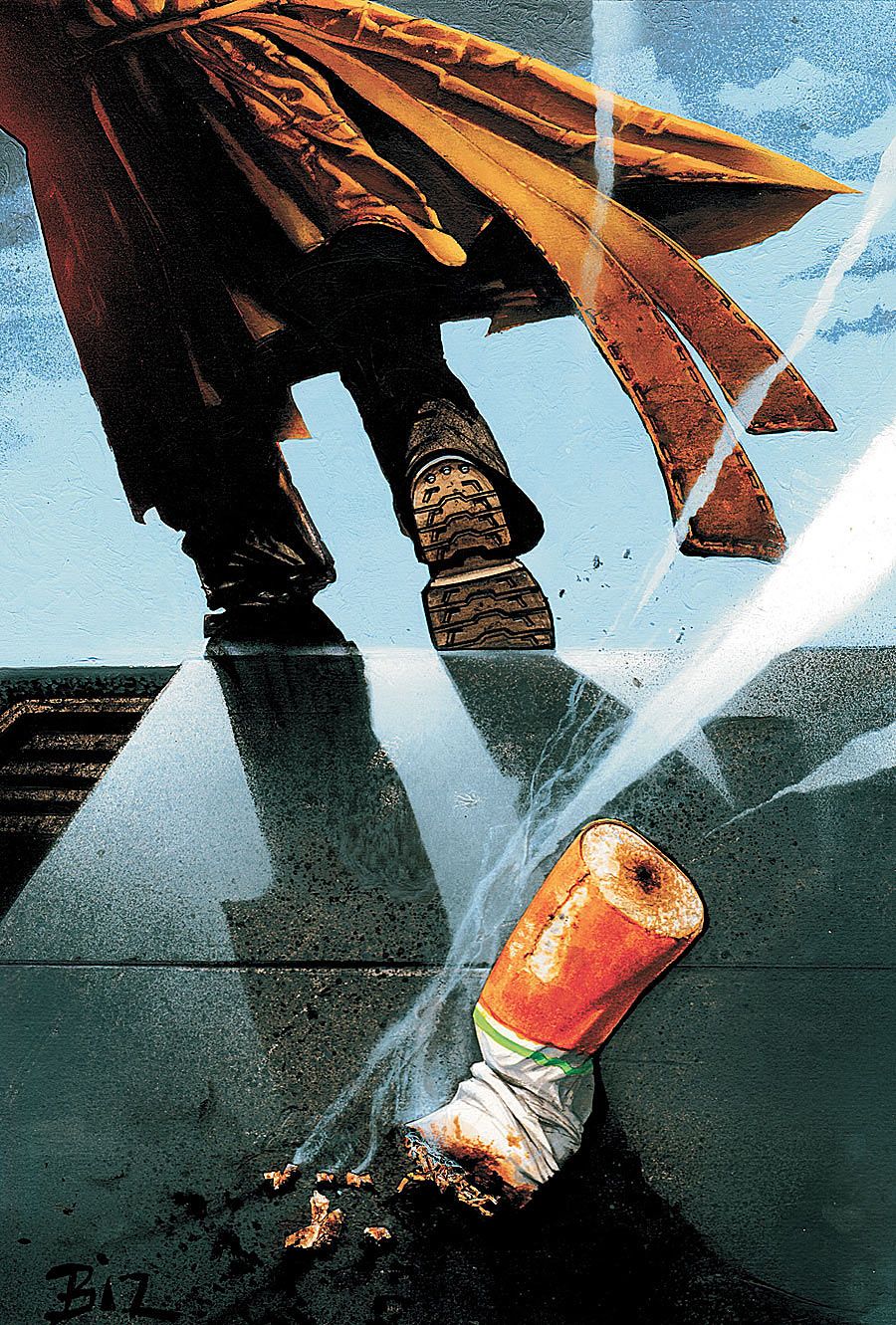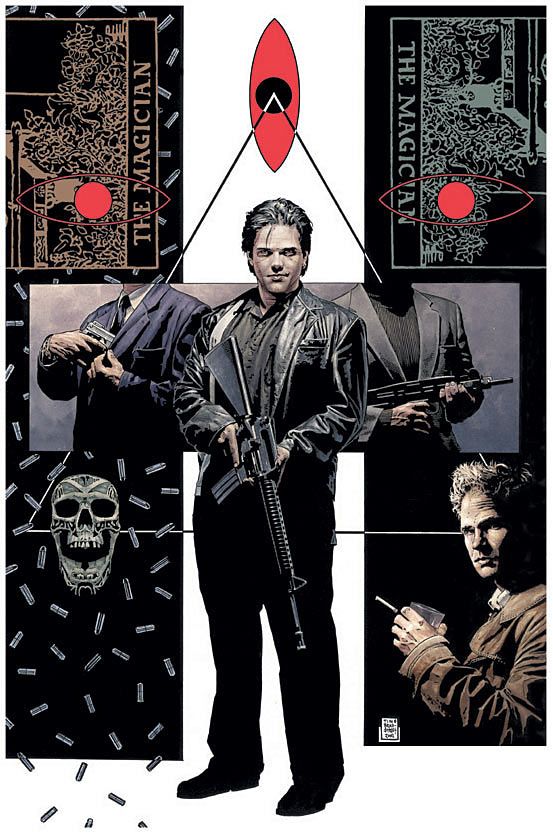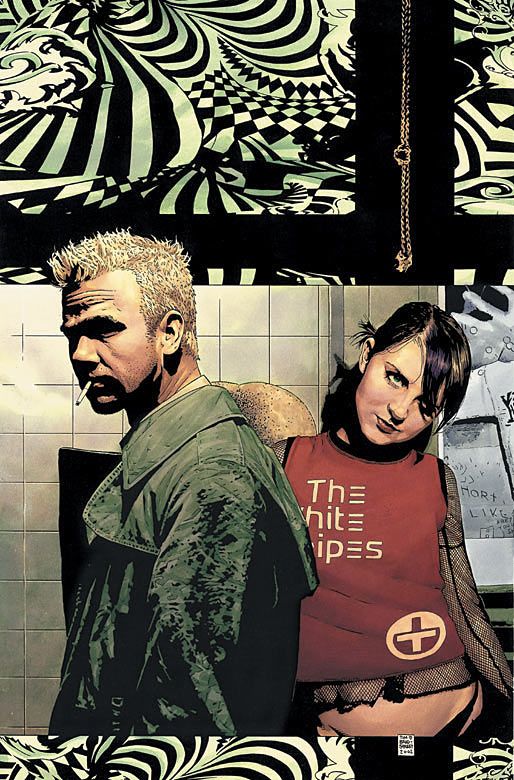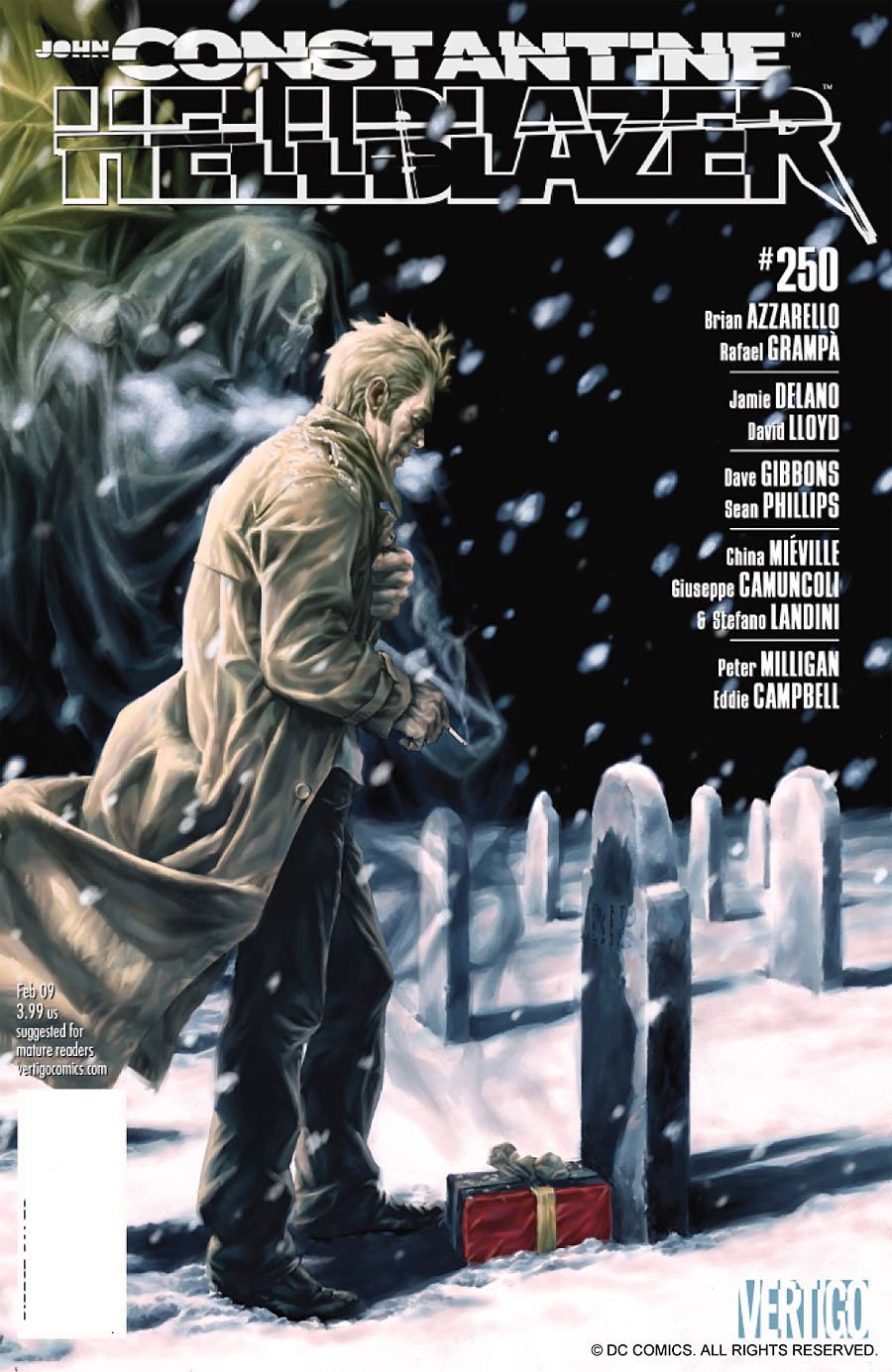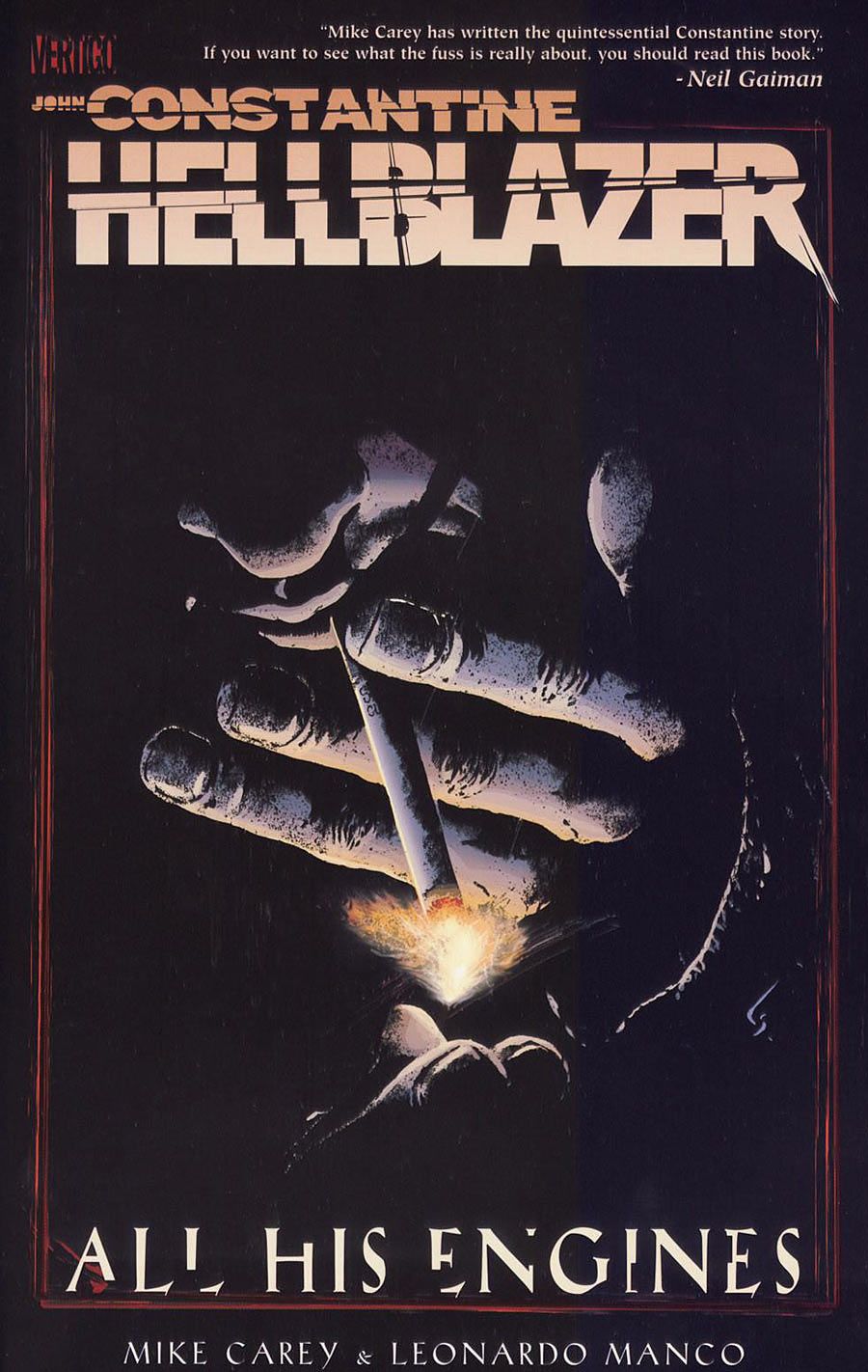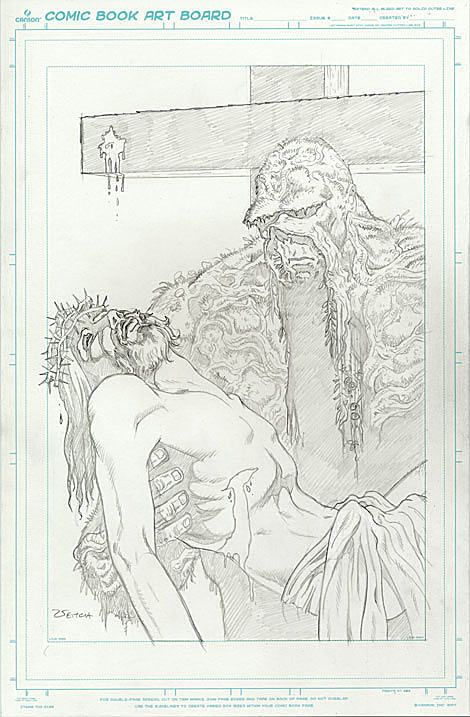In 1985, writer Alan Moore and artists Stephen R. Bissette and John Totleben introduced the amoral, disreputable and blatantly untrustworthy British necromancer John Constantine to the "Saga Of The Swamp Thing" and the DC Universe at large.
With his appearance modeled after musician Sting and his ethics after Machiavelli, Constantine soon graduated to his own Vertigo Comics title, "Hellblazer," written and drawn by some of the biggest names in the comics industry, such as Garth Ennis ("Preacher"), Warren Ellis ("Transmetropolitan"), Brian Azzarello ("100 Bullets"), Tim Bradstreet ("The Punisher"), Jock ("Detective Comics") and Sean Phillips ("Fatale").
Often political and written with an eye toward social commentary, "Hellblazer" helped establish the Vertigo imprint's dark-fantasy tone and broke the mold with its willingness to touch on real-world issues, albeit through Constantine's black magic lens. From the bleak economic years of Margaret Thatcher's England to the dying Punk movement to neo-paganism, class struggles, demon yuppies, virgin births, anti-nuclear protests, the aftermath of the Vietnam War, suicide, fraticide and more, "Hellblazer" rarely shied away from the controversial, nor did it try to soften its chain-smoking, demon-dealing protagonist.
Nearly three decades, 300 Vertigo issues, one movie and a New 52 solo title later, John Constantine is now conning his way onto television with the NBC drama "Constantine." The series premieres October 24 with "The Dark Knight" and "Man of Steel's" David S. Goyer and "The Mentalist's" Daniel Cerone serving as the Executive Producers and Welsh "Criminal Minds" actor Matt Ryan starring as the titular occult detective.
But while the NBC series will bring Constantine to greater mainstream attention, many have questioned whether the undeniably R-rated character should be adapted for network television at all -- and some of "Hellblazer's" past creators agree. CBR News spoke with former "Hellblazer" writers Jamie Delano, Mike Carey, Peter Milligan & Paul Jenkins about their time with John Constantine and their feelings about his jump from the comic page to the small screen.
"I suppose my first thought was 'I probably won't watch that,'" writer Peter Milligan told CBR News about NBC's "Constantine." "This is based on how Constantine has been portrayed outside the pages of 'Hellblazer,' and generally how bland and de-bollocked comics with any edge tend to be when they're portrayed in another medium."
Though Milligan, the last creator to pen the ongoing "Hellblazer" title, expressed the most doubt, each of the former Constantine writers were cautious about the series' prospects. Delano even went so far as to admit, "I won't be able to comment much on specifics regarding the TV adaptation and its merits or otherwise as I am currently avoiding looking at the trailer and surrounding publicity."
WATCH: Hell Comes Calling in First "Constantine" Clip
"At the moment, I'm failing to see a compelling reason [for a TV adaptation]. Another American supernatural investigator on TV? Hmm..." Milligan added.
Carey, the "Unwritten" and "Lucifer" writer whose 2002 to 2006 run was known for setting stories in London and touching upon Constantine's English roots, agreed that his first reaction to the news was a mixture of, "Intense interest. Curiosity. Some foreboding."
"Whenever you're really close to a story, you always have those mixed reactions to a possible adaptation," Carey said. "Mostly you want to see how it will be handled, but you're a little wary of interpretations that cut against the grain of your own feelings about the title."
Not far from his mind was the 2005 film "Constantine," which introduced moviegoers to Keanu Reeves as an American John Constantine and garnered mixed reviews upon release.
"I think TV is potentially a much better home for 'Hellblazer' than the movies," Carey continued. "That probably goes for any adaptation from an ongoing comic series. There's too much story there for a movie to do it full justice. A TV series immediately lets you weave in additional layers of complexity, weave in quick- and slow-building plot lines, adequately flesh out the supporting cast."
Jenkins, whose mid-'90s run touched on everything from Arthurian legend to the protest-suppressing British Criminal Justice Bill, was more optimistic about the upcoming NBC drama.
"When I see the trailer that they've got going, my reaction is a little bit like, 'Oh, cool,'" Jenkins said. "I think as a creative if you work on something and you don't discard it the moment you finish with it then you're going start talking about someone else's version of the character you worked on, and if it's not what you would have done it's kind of negative.
"I'm not as precious about comics as most people who have done a lot of work, so when I saw the 'Constantine' film with Keanu Reeves I didn't really think it was some egregious assault on 'Hellblazer' because it takes many iterations to make stories," Jenkins continued. "I didn't think it was that outrageous, but Keanu Reeves wasn't exactly Sting, you know."
While their individual iterations of John Constantine have varied, all four believed that the character's individuality and cynicism should remain constant across any adaptation -- though what exactly lies at the heart of a great Constantine story was harder to define.
"I've never been an analytical writer, preferring to fly my stories by the seat of my pants, develop strong characters and animate them to discover the dramas inherent in their lives, and then see how they work things out -- kind of nerve-wracking at times, but instincts are there to be trusted," said Delano. "Constantine has an individualistic perception of his world; I guess an empathic understanding of this viewpoint is indispensable in eliciting his cooperation."
In Milligan's case, the writer told CBR that what he thought was at "Hellblazer's" core, and what he would ideally hope to see in a TV adaptation, was the, "Sex, swearing, cynicism, bleakness, a lack of 'learning.' There can be love but no sentimentality."
"I like the comic and the character when it and he wallows in the bleak and miserable gutters of life," Milligan added.
Also of utmost importance was the idea that Constantine, despite being a necromancer, relies on his wits rather than magic to get out of trouble.
"One of the key things about John is that although he knows everything there is to know about magic he doesn't use it overmuch," Carey explained. "Certainly he doesn't win his battles by fighting magical duels; mostly he wins by being a cunning, manipulative bastard, and that's what you need to see [in the show]. That outrageous, ruthless, improvising genius at work."
"I think it's really important to create a consequence for the use of magic, because I feel like these characters that mess around with magic and all that, they tend to be really poor stories because in the end they flash their hands and say 'Hocus pocus' and something comes out of the woodwork, some magical medallion or something, and solves the problem," Jenkins agreed.
As far as the NBC show, "What I think they should really concentrate on is the sort of pressure of using extreme methods to solve problems and how you have to pay for that, what the consequences are," Jenkins said.
Naturally, the other important aspect to the character is his nationality. Like many of its fellow early Vertigo comics, "Hellblazer" was written primarily by the "British Invasion" authors of the 1980s and '90s, intertwining black magic, British folklore and social unrest.
"I think Hellblazer is quite unique. In a comic world dominated by American characters (nothing wrong with that per se) Constantine was unashamedly British," Milligan said. "A certain kind of miserablist British."
Jenkins agreed, calling Constantine "a product of the Punk generation from Great Britain specifically."
"If you contrast the way I wrote him to the way, say, Garth Ennis wrote him, Garth kind of tends to write him as an unrelenting bastard who didn't really have much of a qualm about hurting people sometimes if he needed to," Jenkins said. "Whereas my experience growing up in the Punk era as a little kid and watching it all happen and watching the response spring up -- they had a social conscience but they didn't have a means to articulate it, typical of idealistic young people. Since they couldn't articulate against Margaret Thatcher's Great Britain they tended to just yell and say, 'Fuck off!'" Jenkins laughed.
"I wrote him in the transitional period where he went from the guy who was a bit of a bastard to the guy who was starting to get some kind of conscience and awareness of his country. And I think that carries across a lot; he's really a good person at heart using interesting methods to help people," Jenkins continued. "I mean, why would he do all this stuff to help people if he wasn't a good guy?
"John Constantine is going to be the defender and ally of the people, he's not going to be the defender and ally of the people in power."
Ironically Carey, the only Liverpool native to write the ostensibly Liverpudlian Constantine, felt there was room for a TV version set in America and starring American actors.
"I wouldn't want to be precious about the setting. You do need to have a John with deep roots -- a John who is the product of a time and a place rather than a Phantom Stranger kind of character who walks in, does the job and mysteriously disappears. The point of John, or one of the points of John, is his baggage. So you have to believe in the baggage. But I'm prepared to believe it could be American baggage," Carey said.
To Carey's mind, the ultimate success or failure of the NBC series "really comes down to John Constantine himself. He's so vividly realized in the comic and so unique a character, and every 'Hellblazer' story stands or falls by how it plays and pays off that character."
"Having said that, if they make John a Scouser [slang term for someone from Liverpool] living in London then they get props from me for keeping faith with the comic series to that extent," Carey confessed.
While created by Alan Moore, much of the way we think of John Constantine and "Hellblazer" today can traced back to Delano, whose stories firmly placed Constantine in the middle of the 1980s and '90s culture wars. Arguably Delano's most enduring contribution was his politics, setting the precedent for socio-political criticism within the pages of "Hellblazer."
"I guess I didn't know any better," Delano said. "Relatively new to comics at the time, it seemed natural to me to write Constantine as a character intimately involved with the world and the people with whom he shared it. Politics constrains all our lives, for good and ill, and so is a powerful driver for human drama. The horror genre in fiction offers opportunities for allegorical comment on, and caricature of, the 'real world' and I was happy to exploit that to fuel fictions exploring themes that I wanted to engage with."
"It may have been down to an enlightened editorial position, perhaps eased by the fact that the 'politics' was generally UK-based, a little distant from most US readers, that I do not recall any significant resistance to my themes," continued Delano. "In all my time at Vertigo, in fact, I can recall no instance of an attempt to influence the direction or content of my stories; had such been the case, I would not have lasted there as long as I did."
Maintaining Constantine's outsider vibe and pushing the envelope of what could be dealt with in comics also marked the writers' proudest memories of working on "Hellblazer."
"I wrote a single issue story called 'The Nature Of The Beast,' and it's about John Constantine going into the forest at night -- he walks in and sits down with an old stranger, this old gypsy, and they talk about life," said Jenkins. "Well, that was actually Jesus Christ and it was a reaction to a friend of mine, Rick Veitch and Michael Zulli, who worked on 'Swamp Thing' #88; [Vertigo] pulled the story at the last second -- because apparently it was Swamp Thing in the garden of Gethsemane," Jenkins said of the never-published story "Morning Of The Magician" wherein Swamp Thing was to meet Jesus Christ.
"My argument with my editor was this: how come John Constantine can walk and sit and talk with the Devil and have a beer with him, but the moment you suggest he walks and sits with Jesus Christ, which would be the adversary, they say, 'No, no, you can't do that!' You can deal with the horrible people, you just can't show Jesus -- that's ridiculous. I'm very proud of the fact that we wrote that story," Jenkins said.
"My favorite story from my run on the monthly is definitely 'RSVP,' where John gives his guest of honor speech to London's magical elite and lambasts them all for playing with the spiritual equivalent of loaded guns. I felt like I went out on a high," Carey said. The writer also said he was fond of "All His Engines," the Hellblazer graphic novel he did with artist Leonardo Manco, "Especially in the coda: 'Happy families? What's that all about?'"
"I'm proud to have taken the character imbued with such great potential by Moore and laid a foundation for him on which so many excellent writers and artists have been able to construct such a complex architecture of the imagination, one that has so far endured for close to three decades," Delano said. "And I always had a soft-spot for Constantine's cynically exploited taxi-driving pal, Chas. And poor old Gary Lester. And Papa Midnite had potential I never revisited -- Hell, I like them all."
RELATED: John Constantine Can't Smoke on Network TV
With nearly three decades of the Vertigo comic to compare it to, there will inevitably be disappointments and surprises when it comes to what parts of John Constantine's life NBC decides to adapt for television (although definitely not Constantine's pack-a-day habits, John Constantine Can't Smoke on Network TVhis smoking already nixed by the network). But while the TV version will ultimately succeed or fail based on how well it can win over existing fans and those brand new to the character, to Carey, Jenkins, Milligan and Delano, "Hellblazer's" impact on comics is the more important legacy.
"I would like the lasting legacy of 'Hellblazer' to be an understanding in the 'mainstream' of comics that character and emotion can propel drama as, or more, effectively than plot and costume," Delano said. "It would please me to think that such work ensured the viable future of adventurous imprints such as Vertigo, offering fare that engages and challenges the minds of readers (of all sexes) in a medium which all too often treats them as infants."
"It would be best (for all concerned) if the comics, and other associated creative communities, regarded John Constantine as a force to be treated with wary respect," Delano added. "I'm happy to see him grow and evolve to intrigue and entertain new audiences, but would gently point out to any concerned in that aim that attempts to push the crazy bastard into forms and situations which do not suit him are likely to be resisted with considerable psychic energy. It would be wise not to invite disaster."
"What I want it to be is that people recognize that an awful lot of talented people spent a lot of years writing a lot of stories that probably, to me, [feature] one of the more intriguing characters there has been in the comics industry," Jenkins said, praising his fellow "Hellblazer" creators.
Of course, the last word went to the last writer to work on "Hellblazer," with Milligan phrasing the importance of Constantine and "Hellblazer's" legacy as only he could.
"I doubt if we'll ever have any character who says 'bollocks' and really means it in the way that Constantine did," Milligan concluded.
"Constantine" premieres October 24 at 10pm ET/PT on NBC.

